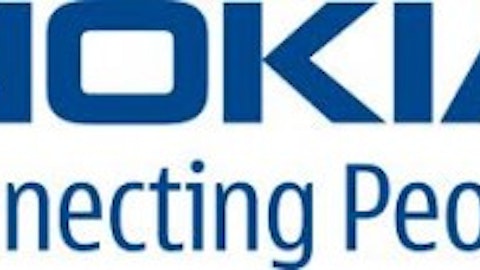Joho Capital, a hedge fund managed by Tiger Cub Robert Karr which tends to be overweight technology stocks, has reported a position of almost 1 million shares in Yelp Inc (NYSE:YELP), giving it 5.7% of the total shares outstanding. We had reported in December that Joho owned close to 900,000 shares of the local business reviews company (read our analysis of Yelp from December); the fund did not have a position at the end of the third quarter, according to its 13F filing (see more of Karr’s stock picks).
Yelp Inc still had negative operating income in the third quarter of 2012, and in fact in the first nine months of the year its operating losses were higher than in the same period in 2011 despite a 65% increase in revenue. This is because marketing, product development, and SGA costs have swelled. Wall Street analysts are predicting only 2 cents per share of earnings in 2013; consensus for 2012 is that Yelp lost 31 cents per share. That certainly isn’t positive for the company’s value prospects and we’d struggle to recommend it as a buy until it demonstrated sustained profitability.
Yelp’s stock price dropped 6% on January 15th on high volume after Facebook Inc (NASDAQ:FB)’s mystery announcement turned out to be a “Social Graph.” The markets believed that this feature, by serving Facebook users their friends’ recommendations for local businesses, would outcompete Yelp’s offering. Facebook’s market penetration is enormous, and while Yelp certainly has more people reviewing businesses- theoretically making the consensus opinion more accurate- they are overwhelmingly strangers to most consumers and people may prefer to trust the views of their friends (or, we should say, their Facebook friends).
Daniel Benton’s Andor Capital Management and Robert Pitts’ Steadfast Capital Management each owned about half a million shares of Yelp Inc at the end of September (check out Steadfast’s favorite stocks). Three insiders have sold their shares of Yelp since the beginning of 2013 (see a history of insider sales at Yelp). We don’t usually put much weight on insider selling, as the principles of diversification make it rational for insiders to reduce their exposure to the stock price of the company they work for, but it is something to be aware of. Another point is that over 60% of the outstanding shares of Yelp were held short as of the most recent data- truly an enormous figure. The cost to borrow may be too high for investors to profitably short the stock even if it declines significantly.
Most of Yelp’s peers look potentially overvalued as well:
Facebook has rallied but is still short of its IPO price, currently trading at about $31 per share. Earnings multiples are high there as well- 47 times consensus for 2013- and we weren’t particularly impressed with the potential of Social Graph (note that Yelp’s market cap is only a little over $1 billion, and that may be overvalued; even replacing Yelp entirely would be a drop in the bucket of Facebook’s valuation).
We can also compare Yelp to Google Inc (NASDAQ:GOOG) as the owner of Zagat, Groupon Inc (NASDAQ:GRPN) as a different marketing channel for local businesses (bulk-buyer discounts as opposed to reviews), and restaurant reservation site OpenTable Inc (NASDAQ:OPEN). OpenTable has been growing rapidly, but it is valued at 55 times trailing earnings and we think that we’d avoid it. Groupon has been having profitability issues of its own and is down 76% in the last year as the company has disappointed investors. For some time we had wondered if it was a value play but at its current price it trades at 20 times consensus for 2013 and we’d have to pass. Google’s P/E based on expected 2013 numbers is 15, as analysts expect it to improve based on both its core business and improved integration of Motorola Mobility. We are waiting to see what the company’s results were like last quarter.
Yelp is certainly a speculative investment right now, and we don’t think that it’s a good one. Even if Facebook doesn’t successfully move into its space, the company would struggle to earn significant profits.
Disclosure: I own no shares of any stocks mentioned in this article.






